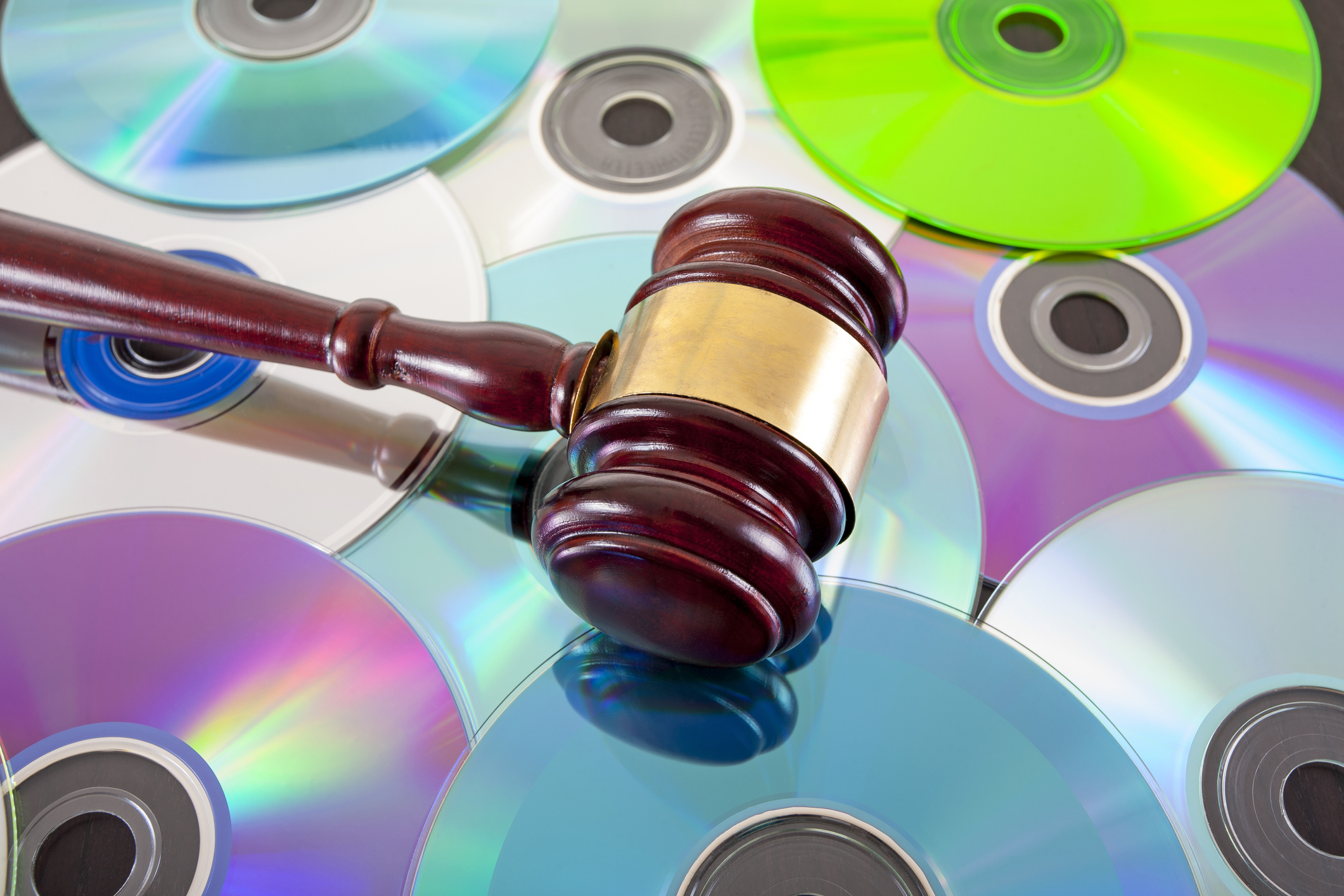Ninth Circuit Finds No “Public Performance Rights” For Pre-1972 Sound Recordings
PPLAdmin

bulk writable compact disc background with gavel on top
On August 23rd, 2021, the Ninth Circuit reversed a District Court ruling in a dispute between Sirius XM and founders of The Turtles, Howard Kaylan and Mark Volman (“Flo & Eddie”), that has been brewing for years. In 2013, Flo & Eddie sued Sirius XM for copyright infringement on the grounds that Sirius XM “publicly performed” pre-1972 sound recordings owned by Flo & Eddie. “Sound recordings” produced before February 15th, 1972, were governed by state rather than federal copyright law. These pre-1972 sound recordings were not technically subject to federal copyright protection before the Music Modernization Act took effect at the beginning of October 2018.
The dispute revolves around the definition of the term “exclusive ownership” under the California Civil Code section that gives authors of pre-1972 sound recordings “exclusive ownership” of those recordings until February 15th, 2047. The District Court agreed with Flo & Eddie’s arguments that “exclusive ownership” includes the exclusive “right to publicly perform” the sound recording(s) at issue. The exclusive right to publicly perform a work entitles the copyright owner to decide when and where their sound recording is played, or whether it is played at all. However, the Ninth Circuit felt that the District Court’s ruling was too broad and reversed the ruling.
While the District Court relied on the modern dictionary definition of the words “exclusive ownership” and the context of the term within the language of the statute, the Ninth Circuit found that the District Court should have applied the historical definition of the term “exclusive ownership.” The phrase “exclusive ownership” was first used in the Copyright Act of 1872. The Ninth Circuit noted that as of 1872, the right of public performance had not been recognized by courts. In other words, the common law rule going back to 1872 was that no “right of public performance” existed for music. The Ninth Circuit further found that the California statute is presumed not to change common law rules unless the statute expressly states that it does. The Ninth Circuit ruled that because “exclusive ownership” did not include the right of public performance at the time the Copyright Act of 1872 was enacted, “exclusive ownership” should be given its historical meaning because the California state legislature has not expressly changed the meaning. As a result, the Ninth Circuit reversed the District Court’s ruling.
Flo & Eddie Inc. is represented by Kalpana Srinivasan, Rachel S. Black, Stephen E. Morrissey, Rohit Nath, and Steven G. Sklaver of Susman Godfrey LLP, Henry D. Gradstein, and Maryann R. Marzano of Gradstein & Marzano PC.
Sirius is represented by Anton Metlitsky, Jonathan Hacker, Daniel Petrocelli, Cassandra Seto, and Patrick S. McNally of O’Melveny & Myers LLP.
The case is Flo & Eddie Inc. v. Sirius XM Radio Inc., case number 17-55844, in the U.S. Court of Appeals for the Ninth Circuit.
* Lowe & Associates (“The Firm”) is an entertainment and business law firm located in Beverly Hills, California. The firm has extensive experience handling cases involving copyright and intellectual property law, having provided top-quality legal services to its clients since 1991. The Firm is recognized for its many achievements, including successfully litigating many high-profile cases.
Find us at our website at www.LoweLaw.com.
